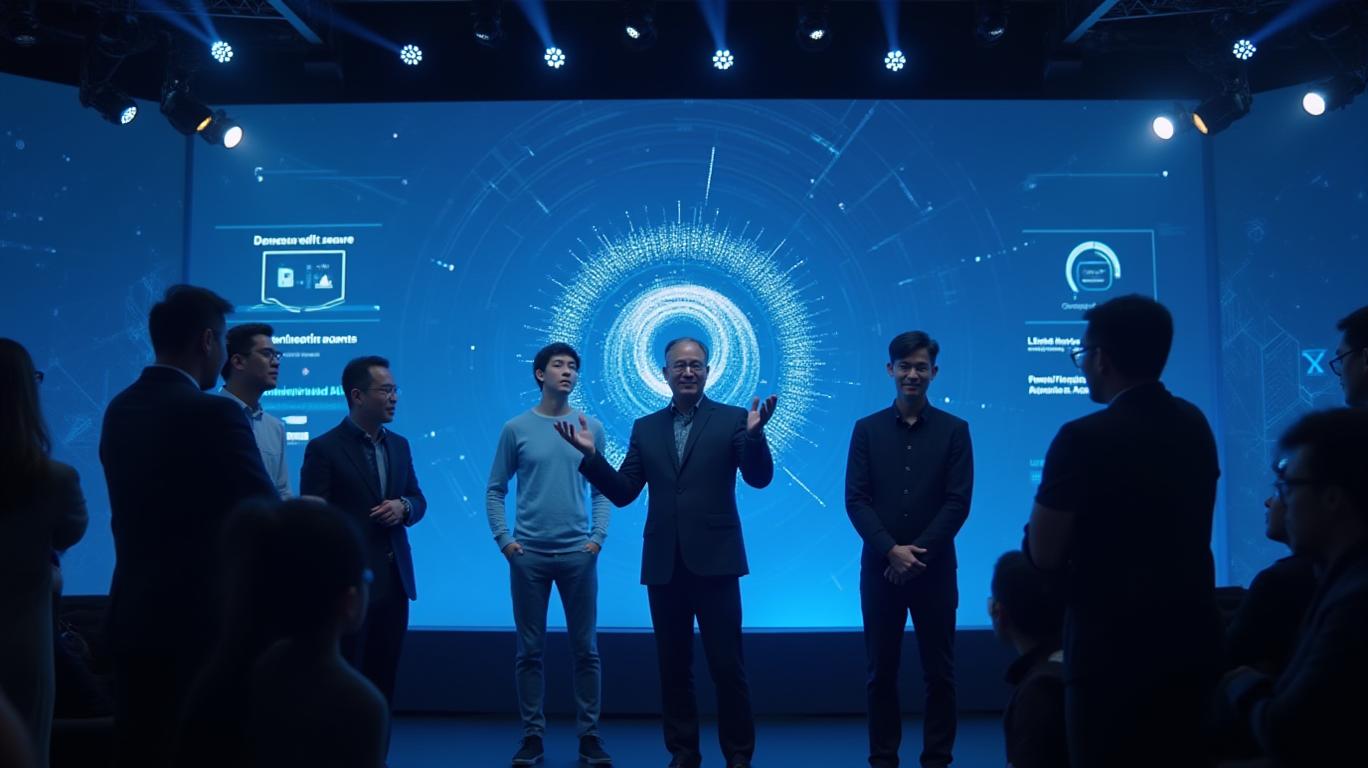"ORA Unveils AI Revolution: Decentralized, Secure, and Autonomous Agents"
ORA Protocol has announced the launch of Resilient Model Services (RMS) and the opAgent Framework, marking a significant advancement in the field of artificial intelligence. The RMS is designed to provide decentralized, verifiable, and cost-efficient inference, while the opAgent Framework aims to address vulnerabilities in existing AI systems by reducing reliance on centralized control points and leveraging blockchain technology for continuous operation.
ORA's RMS is currently at Stage 1 and is already enabling users to build and integrate advanced AI systems with verifiable, resilient, and decentralized computation. The platform has offered competitive API rates for DeepSeek R1 since January 27th and plans to release three additional stages in the first half of 2025.
The opAgent Framework represents a fundamental shift in how artificial intelligence operates within decentralized systems. Through the introduction of opML (Optimistic Machine Learning) technology, ORA has created AI agents that maintain permanent ownership of digital assets, operate through verifiable computations, and evolve through mathematical consensus. This approach resolves the paradox of decentralized networks relying on centralized intelligence by establishing truly autonomous digital entities that exist indefinitely through the blockchain, ensuring transparency and verifiable operations at every level.
The opAgent Framework combines RMS, which verifies off-chain computation, and smart contracts that verify the agent's actions on-chain. Central to the framework is the AI agent wallet, a smart-contract-based system that eliminates traditional private key vulnerabilities, ensuring that AI agents can securely manage digital assets while maintaining decentralization. The platform's On-chain AI Oracle (OAO) facilitates verifiable computations and trustless validation of agent actions, while RMS does the same for off-chain actions.
The opAgent Framework's approach to AI security represents a significant advancement over traditional systems. By removing reliance on private keys and implementing smart-contract-based control mechanisms, the platform ensures that AI agents cannot be compromised through conventional attack vectors. This security model extends beyond basic protection to enable truly autonomous operation, where agents can evolve and adapt while maintaining verifiable integrity. The framework's innovative consensus mechanism allows multiple agents to collaborate securely, validating each other's actions through mathematical proofs rather than centralized authority.
RMS and the opAgent Framework address several critical challenges in the AI industry, including the complete elimination of centralized control points, verifiable computation through blockchain technology, permanent asset ownership for AI entities, self-reinforcing economic models, and collaborative problem-solving capabilities. Through its innovative architecture 
Conoce rápidamente la historia y el origen de varias monedas conocidas
Latest Articles
Stay ahead of the market.
Get curated U.S. market news, insights and key dates delivered to your inbox.

Comments
No comments yet